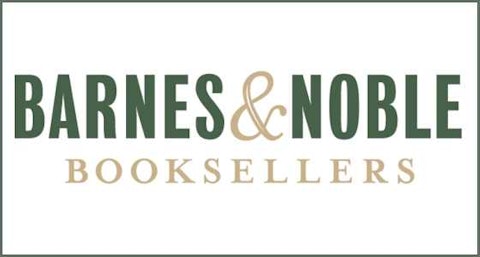Barnes & Noble, Inc. (NYSE:BKS) invested heavily in its Nook e-reader business, a move that may have been short-sighted and incomplete. After a disappointing holiday season for the company when Nook sales failed to meet expectations, Barnes and Noble reported late Wednesday that Nook EBITDA for its fiscal year will be greater than in fiscal 2012 losses of $262 million.
Where did Barnes and Noble go wrong? And why hasn’t the company kept up with its competition from devices like Apple Inc. (NASDAQ:AAPL)‘s iPad and Amazon.com, Inc. (NASDAQ:AMZN)‘s Kindle, or from the sales of media from these outlets?

The Nook segment, which consists of the company’s digital business (including e-readers, digital content and accessories), saw revenues of $160 million for the second quarter, increasing 6% as compared to a year ago. Digital content sales (which include e-books, digital newsstand, and apps) increased 38% for the second quarter over the prior year.
The Barnes and Noble Retail segment, which is primarily physical books sold both in-stores and online, had revenues of $996 million for the second quarter, decreasing approximately 3% over the prior year due to flat comparable store sales, store closures and lower BN.com sales.
In comparison, for the most recent quarter, Apple net sales of the iPad were $10.7 billion. Net sales for iTunes, software and services (which include books, movies, and music) were $3.7 billion in the first quarter of 2013, an increase of $667 million or 22% compared to the first quarter of 2012. What Apple nets in one quarter off content alone, is more than Barnes and Noble makes in the full year for both the e-reader and content sales.
Amazon CEO Jeff Bezos declared that after 5 years of e-book selling, eBooks was a multi-billion dollar category and growing fast. eBooks were up 70% overall in 2012. Amazon doesn’t share actual e-book numbers, or Kindle sales figures, but North American media (which includes e-books, music, and videos) revenues were $2.9 billion for the fourth quarter of 2012 (up 13%) and $9.19 billion for the year (up 15%). International media revenues were $3.6 billion for the quarter and $10.75 billion for the year. In contrast, Amazon’s physical book sales experienced the lowest December growth rate in 17 years, up by only 5%, according to a statement made by Bezos.
It is hard to compare the three companies on just media, e-book, or tablet sales, when they each report them differently. But what we can see is that Barnes and Noble, lags significantly behind. Barnes and Noble wraps up the revenue from the Nook and digital content into one number, and that number for just one quarter, is still less than half of what the other two companies reported in for just media sales. And Barnes and Noble, in spite of the brick and mortar opportunities, saw a decrease in physical book sales, while Amazon saw growth, albeit low growth.
Where Did it All Go Wrong?
Barnes and Noble was once an American powerhouse. It was once of the most popular places to buy books and music. How did a store that called itself one of the original “big box” stores, fall so far as to rank lowest in book sales out of the booksellers? Where did the company go wrong?
One area the company has not kept up in is music sales. Both Amazon and Apple are thought of as go-to places to download the latest music, and older music as well. Both companies allow for single song downloads as well. Barnes and Noble sells CDs both online and in-store, but does not sell downloads, or single song tracks, on its website.
The same problem extends to movies and television shows. DVDs and Blu-ray discs are available online through Barnes and Noble, but the company does not sell instant downloads, unlike its two competitors. The Kindle and the iPad (and other Apple products, of course) do allow for one TV show, or one song, purchases and instant downloads. (Note: The Nook does allow for such downloads from third party vendors and apps. However, it is the third party that benefits from the sales of that media, not Barnes and Noble.)
Where Barnes and Noble failed is in keeping up with the demand for media other than books. Amazon’s digital media selection has grown to over 23 million movies, TV shows, songs, magazines, books, audiobooks, and popular apps and games in 2012, an increase from 19 million at year-end 2011. Meanwhile, the Barnes and Noble websites boasts that the Nook provides access to only 3 million books, songs, magazines, and videos.
Don’t Put All Your Eggs in One Tablet
Barnes and Noble invested heavily in the Nook to be its saving grace. But now the e-reader market is on the decline, while more versatile tablets improve in sales, according to an IHS Inc. (NYSE:IHS) iSuppli Consumer Electronics Special Report.
From 2008 to 2010, e-reader sales (then primarily just the Nook and Kindle) increased from 1 million to over 10 million. In 2011, 23.2 million e-readers were sold.
But now readers aren’t buying the exciting novelty anymore. They are turning to tablets. Tablet shipments will hit 120 million units in 2012 only after two short years of the device being on the market, and 340 million systems are expected by 2016—a magnitude of sales exceeded only by mobile handsets, according to IHS. Comparatively, it is estimated that e-reader sales will fall to 14.9 million units, down a steep 36 percent from 2011- a number foreshadowed by the Barnes and Noble announcement to expect losses in the Nook segment. IHS also predicts a 27% reduction in e-readers in 2013, and only 7.1 million readers to be sold in 2016.
Barnes and Noble put too much emphasis on the e-reader without investing further into the media that consumers wants. Both the Nook and Kindle have evolved to become tablets, but neither has achieved what the iPad has – multi-functional, and business use. The Nook and Kindle, in spite of tablet status, are still considered media tablets. But the iPad is used for a wide range of business applications, in addition to doing everything that the Nook and Kindle do.
In Conclusion
Until Barnes and Noble can begin to meet the consumer desire and demand for more music, movies, and television- and profit from it, it is not a wise investment. Neither the company nor the Nook can compete in today’s media-obsessed market. If the day comes when the Nook can be used as a business tool, and compete against the iPad in the business use market, the company will become a force with investing in again.
The article Where Barnes and Noble Went Wrong originally appeared on Fool.com and is written by Erin McBride.
Copyright © 1995 – 2013 The Motley Fool, LLC. All rights reserved. The Motley Fool has a disclosure policy.





